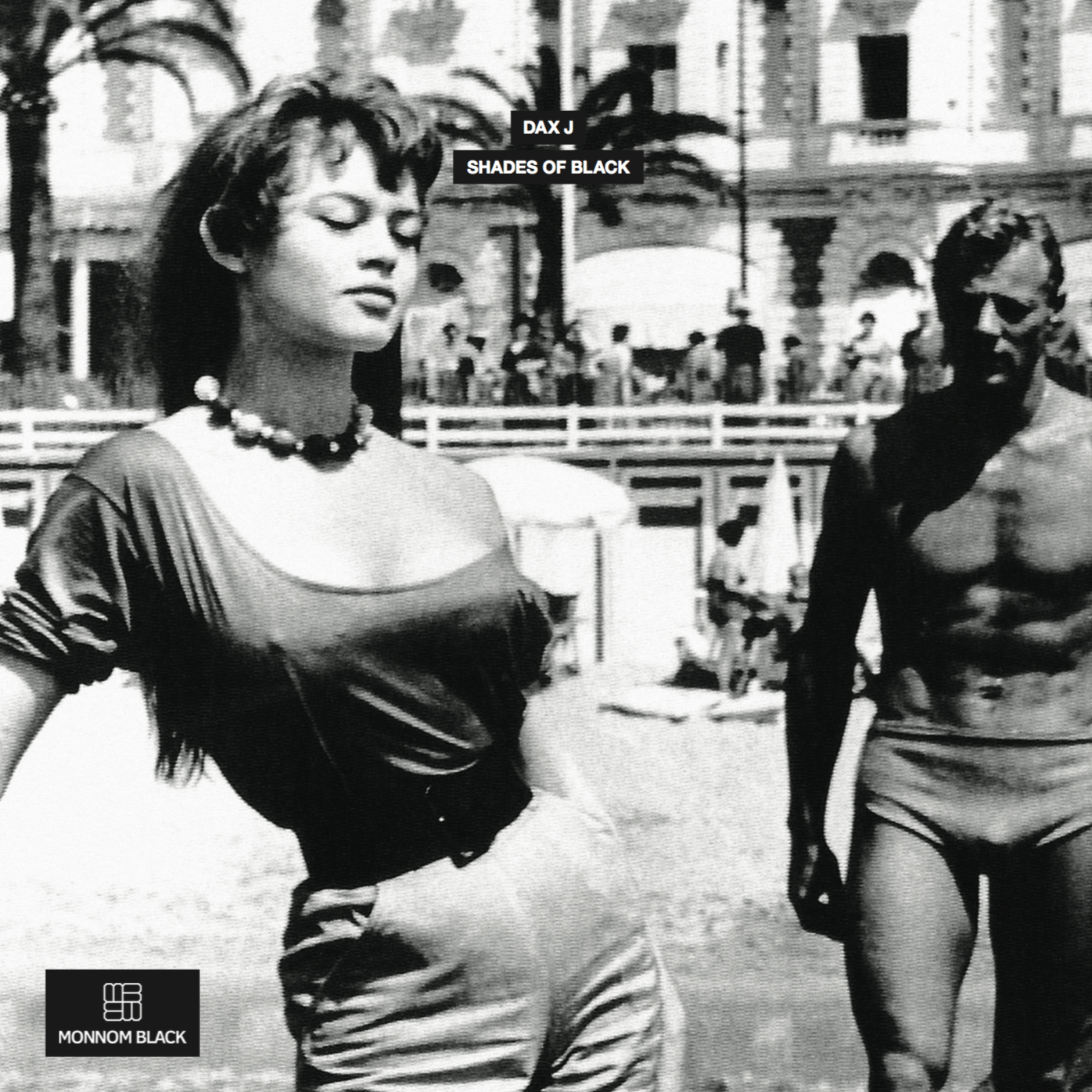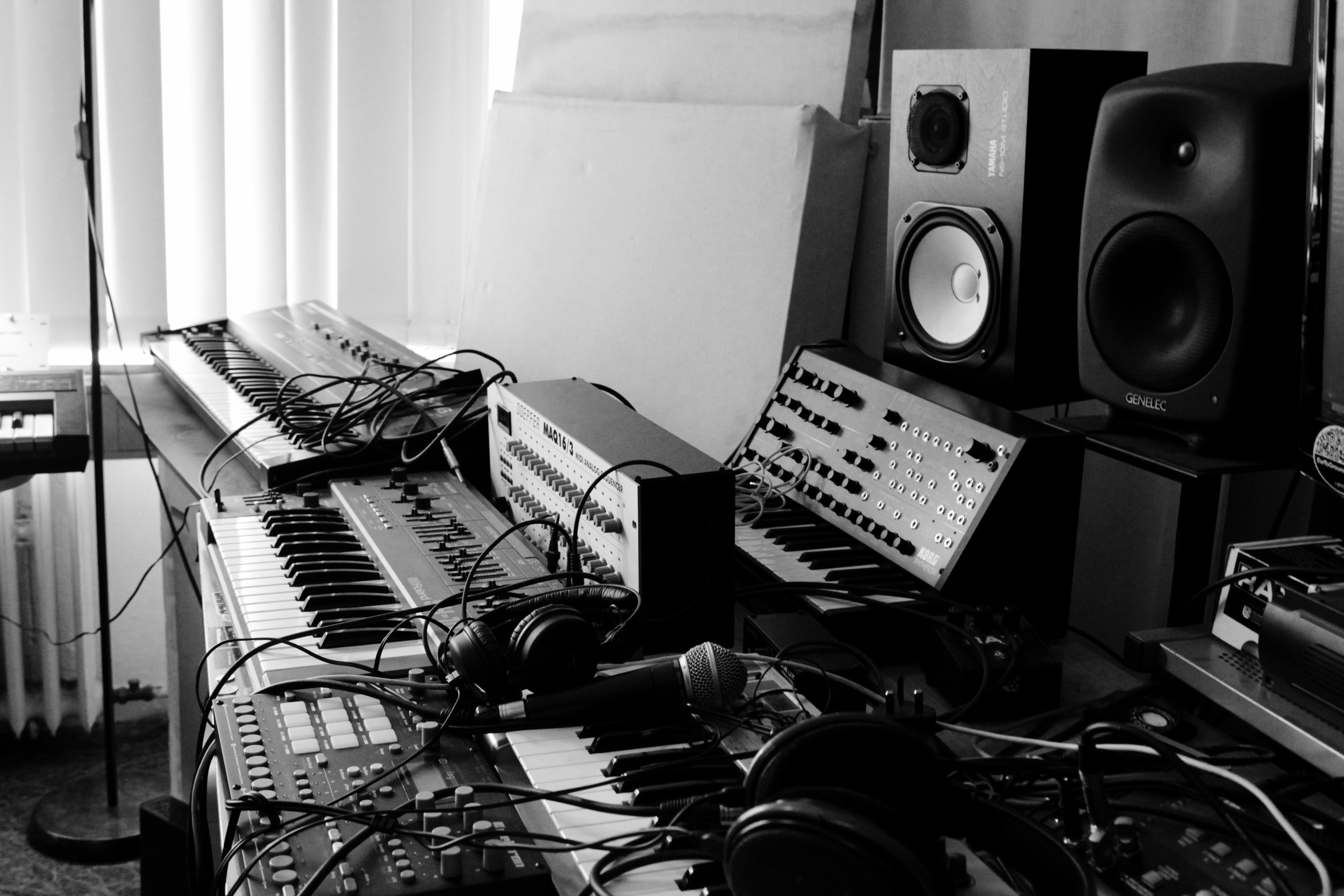Q&A: Stream a Track from the New Dax J Album
'Shades of Black' is scheduled for October 30 release.

Dax J will release his first solo album on his own imprint Monnom Black in October this year. The album will come after what will have been a busy year for Dax touring across Europe and Asia with noteable recent performances at Berghain in Berlin and Glastonbury Festival in the UK. He has also held a monthly residency at Corsica Studios in London for Jaded’s Sunday parties.
Ahead of the album’s October 30 release, XLR8R spoke with Dax J to learn more about the release, with “Devine Right” exclusively available to stream in full below.
Tracklisting:
a1 / 1 Orlok’s Symphony
a2 / 2 Beyond the Planets
a3 / 3 Renegades of Conflict
b1 / 4 Devine Right
b2 / 5 In the Shadows
c1 / 6 Protect the Prophecy
c2 / 7 Requiem Souls
d1 / 8 Black Pegasus
d2 / 9 Sempa
d3 / 10 Afterlife

Between 16 and 21 you started to play for London’s pirate radio stations.What pushed you to begin from such an environment? What kind of records were going around at that time there?
I was at school when I discovered Pirate Radio. Some friends were bringing in cassette tapes recorded off the radio and we would listen to them at break times on our Walkmans. It’s all we would talk about. So after discovering these tapes I would tune into the radio at home myself and start recording my own. Soon after this I got a really crappy pair of belt drive decks and started to buy records and learnt to mix. I had decided then at school that I wanted to play on one of these Pirate Radios. That was my goal; I couldn’t see anything past that but I just knew that was all I wanted to do. I was fascinated by it. I loved the music I was hearing, and being a young rebellious teen I liked the fact that it was illegal too. I had completely lost interest in school by my final year; I was skipping classes regularly to go off and buy records.
How have those experiences, along with growing up in such a unique city like London, influenced the sound you are forming today?
Those experiences have had a huge influence on my sound. Drum & Bass was all about the breaks, amens and breakbeats, and I still use these in my tracks today. This is my roots, and I use them because I just love the raw sound of them. They have soul and a story behind them.
What’s an underground rave? Can you describe it?
My first experience going to a rave in London just blew my mind! I couldn’t believe that these parties went on, I was thinking like “Is this real?” There were all types of people from all walks of life in there. I just remember that the energy was incredible–you could feel it in the air, and it was so new and fresh to me. I loved it from the first moment.
Why did you start your own label?
I wanted an outlet to release my own music as well as a platform for other artists. It’s a very important part for me as an artist to have this, because it is essentially my own tastes that I’m pushing. The label represents me whether it’s my music or someone else’s. It’s a reflection of the sound I want to push. It’s very satisfying when I release a great record from another artist and I go out to a party somewhere and I hear it being played.
What’s your idea of Techno? Is it a closed genre itself or a blend of genres where contamination is a constant in your opinion?
For me Techno is a very open music, and its real! There is no fakeness involved like there is in other scenes. It is real raw emotional music, and that’s why it has been around since the start of the rave scene. It’s continually being influenced by the diverse backgrounds that producers and DJs come from, and it’s this diversity that keeps the music evolving and changing. That is what makes the music interesting: Everyone is coming from their unique background and bringing their own influences and flavor.
Recently you’ve been playing in almost every corner of the planet. Which local scene caught your attention the most? Why?
Every gig I’m playing in France and Italy is always amazing; the scenes over there are so strong, the crowd is always so passionate. I had a great time in Taipei recently; the music is growing really well there, and it’s one of Asia’s new leading scenes. Berlin is always amazing. The people here are so supportive of everything you do–it’s really refreshing to be in a city like this where people take the music very seriously and show you so much interest in what you do. I’ve been really lucky this year in that most of the places I’ve played have had a really great vibe. It’s almost impossible to just pick out one spot.
What does Berlin give you that a city like London has not?
I’m totally in love with the city. One of the main things it gives me is freedom. I just feel so free here with no restrictions. The vibe is so relaxed, compared to London it feels like I’m on a beach holiday. Everywhere is just chilled. I like the fact that everything is close by. I cycle everywhere, It’s really quick for me to get to anywhere I want to go. All these things have really allowed me to focus in on my music. I have more time here to work in the studio. I’m also buying alot more records again too, with so many great record shops here. I will always love London but many factors can make it a stressful city to live in. I’m happy with my new peaceful surroundings and have no plans to move.
Being a mastering engineer and work on others’ projects is actually a benefit or a handicap for an artist? Why?
For me I think it has been a benefit, because when I make a track I will immediately master it myself. And it’s at this point that I notice problems within the mix. It’s usually that the kick and bass are way too loud; this happens to me every time–still to this day! So I only notice stuff like this when I’m at the mastering stage and I can then go back to the mix and make adjustments. If I didn’t master then I probably wouldn’t be as aware to these problems as I am now.

